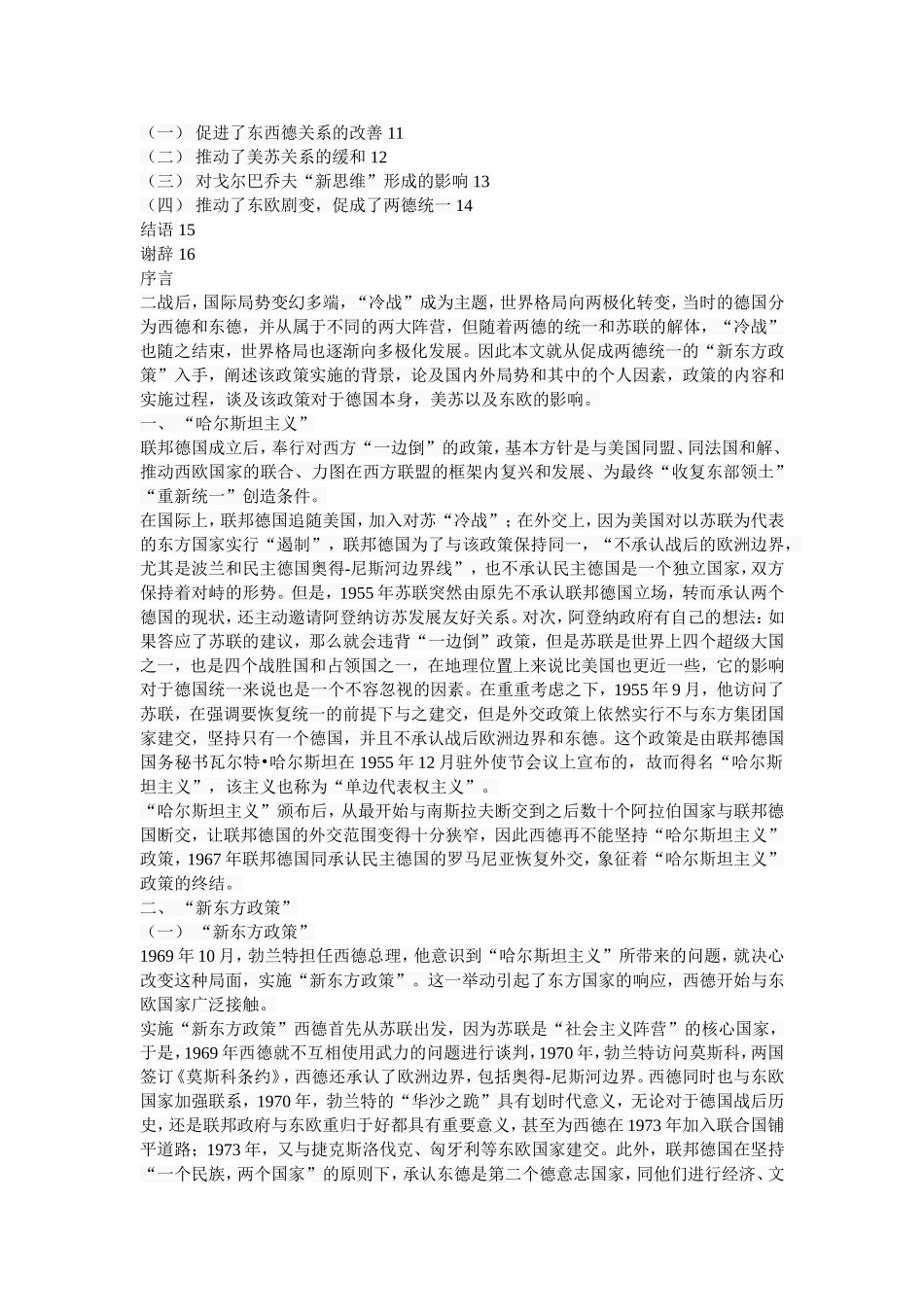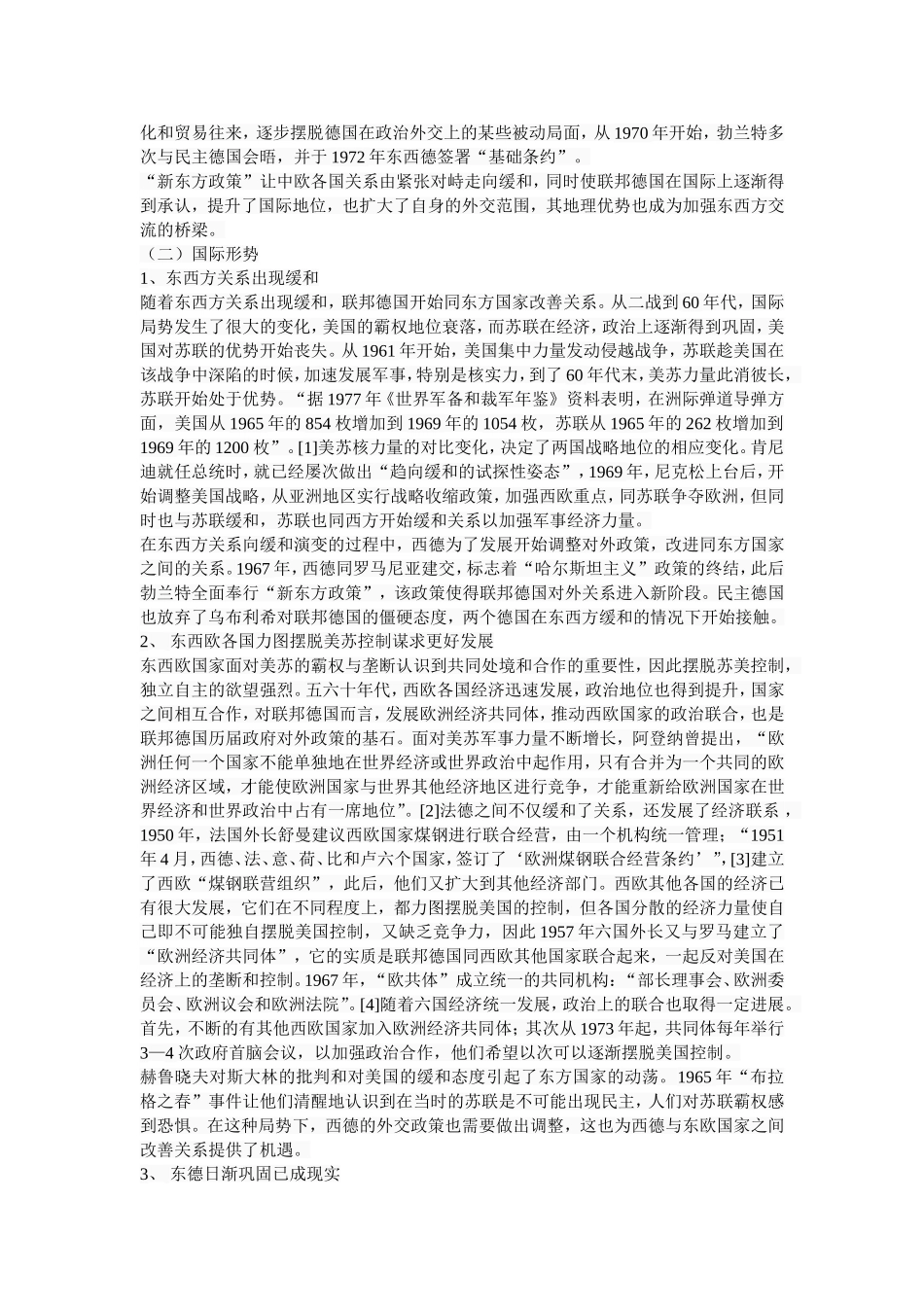勃兰特的“新东方政策”摘 要二战后,美苏为首的资本主义和社会主义两大阵营的对峙,直接导致了德国分裂成为两个主权国家,分别是联邦共和国和民主共和国,两个德国也分别从属于两大阵营,德国分裂是战后重大国际事件,两德问题自然就备受瞩目。随着国内外形势的改变与勃兰特个人的促动,联邦德国的外交政策也随之变化,放弃了不合时代潮流的“哈尔斯坦主义”,“新东方政策”开始实施,联邦德国的外交也迈入了一个新时期,之后的施密特政府和科尔政府也依然实施该政策,并且给 1990 年德国的统一打下基础。“新东方政策”对德国统一起到重要作用的同时,对东西方关系的缓和与戈尔巴乔夫“新思维”的形成也有一定影响。因此本文将从“新东方政策”的出台前的国内外环境、内容以及产生的影响几方面来叙述。关键词:维利·勃兰特;两德统一;背景;影响AbstractAfter the Second War, the confrontation between the two camps of capitalism and socialism led by the United States and Soviet Union directly caused Germany was divided into two parts——The Federal Republic of Germany and Democratic Republic of Germany. The Federal Republic of Germany was subordinate to Capitalism, the Democratic Republic of Germany was subordinate to Socialism. German division was the so importantly international event after World War II that the German problem, of course, attracted much attention. Germany’s foreign policy has changed with the changing of international situation and Willy Brandt’s personal factors. They abandoned the “Hallstein Doctine” which was not in step with the trend of times and implemented the “New Ostpolitik”.It marked the foreign policy of the Federal Republic of Germany got into a new stage. Besides, the next Schmidt and Cole continued this policy and urged German unified in 1990. The “New Ostpolitik” was not good only for German unification but for East—West relation eased and the formation Gorbachev’s “New Thinking”.so this passage will describe...


